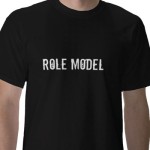By Dr. Laura Hills, Blue Pencil Institute, www.bluepencilinstitute.com
 I’ve always been a good writer. My essays and papers were well-received in high school and college. However, my writing quality went through the roof when I had a writing experience early in my career that taught me how to be clearer and more concise.
I’ve always been a good writer. My essays and papers were well-received in high school and college. However, my writing quality went through the roof when I had a writing experience early in my career that taught me how to be clearer and more concise.
I landed a job writing an eight-page monthly subscription newsletter for dentists on how to market and manage their practices. The publisher told me that my job as the sole author of the newsletter was to pack as much good, solid, useful information into each issue as I possibly could. A packed newsletter, he said, gives readers their money’s worth and a reason to renew their subscriptions. “Cut a line here, a word there, and say whatever you have to say in the smallest space you possibly can,” he told me. “Overstuff each issue, just as you’d cram a small suitcase. Use every scrap of valuable newsletter real estate to pack in more great ideas for our readers.”
I wrote that newsletter – every word, every issue – for seven years. And from that experience, I became masterful at trimming the unnecessary. The lessons I learned from this formative experience are these: A reader’s attention is precious. As writers, we have an obligation not to waste that attention. And, we become better writers when we stuff as much content as we can into the space we have.
What happens when your space is unlimited? Before you begin to write, imagine filling a small suitcase. No one wants to read text that rambles on. Write economically. Trim what isn’t needed. Pack light — only what you need — and use every inch well. Your reader will appreciate your brevity but more importantly, your writing will become clearer, better, and more concise.
Dr. Laura Hills is an author, speaker, trainer, and coach who specializes in personal and professional development for career professionals. She is the president of Blue Pencil Institute, www.bluepencilinstitute.com. This post is an excerpt from her latest book, They’ll Eat Out of Your Hand If You Know What to Feed Them: http://www.bluepencilinstitute.com/products/featured-product.html. Join her mailing list for updates about her latest books, articles, and programs at: http://eepurl.com/Owd55.









